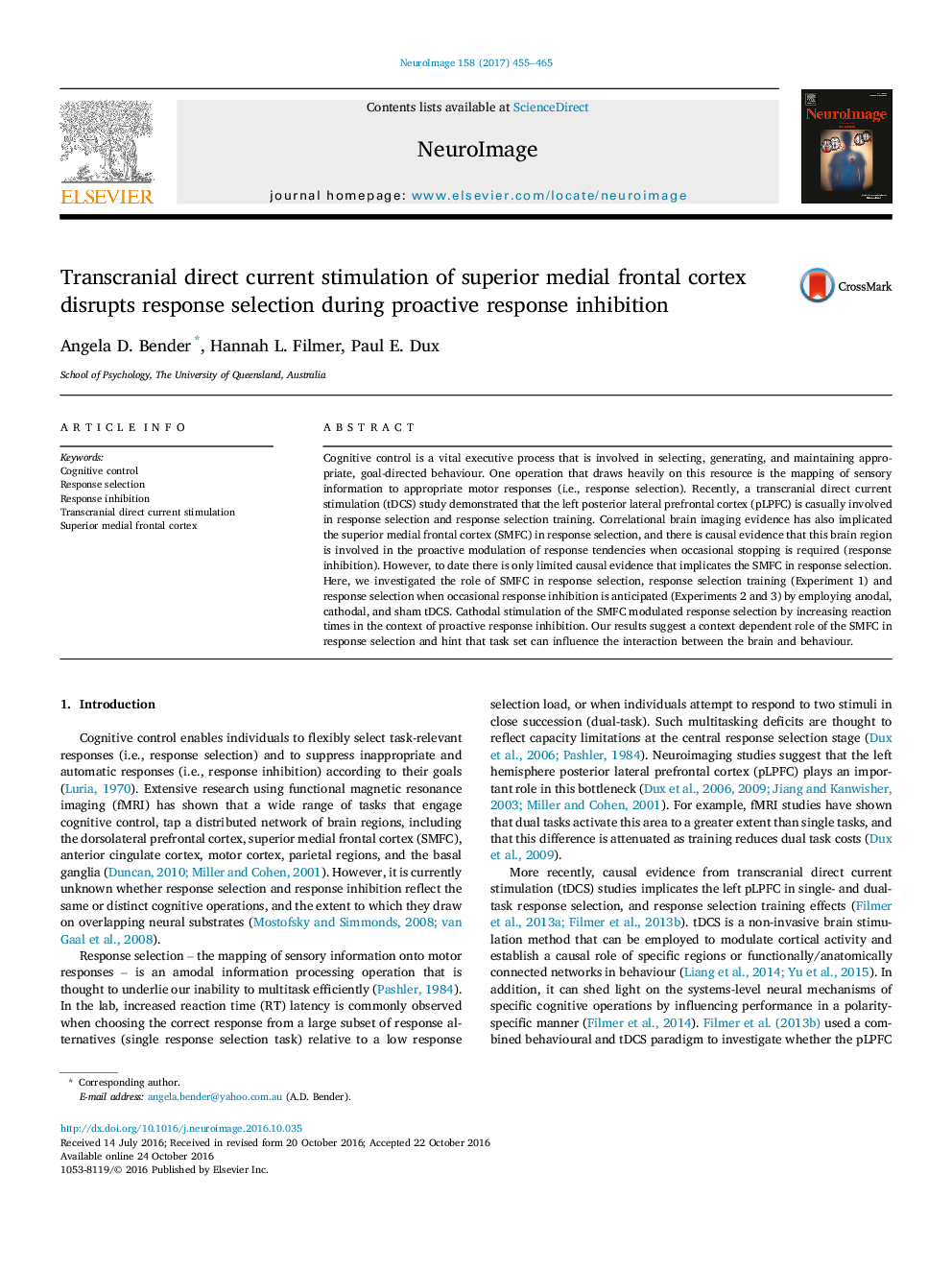| Article ID | Journal | Published Year | Pages | File Type |
|---|---|---|---|---|
| 5630996 | NeuroImage | 2017 | 11 Pages |
â¢We used tDCS to test the causal role of the superior medial frontal cortex in response selection and inhibition.â¢Participants made speeded responses under occasional vs. never stop context conditions.â¢Cathodal tDCS only prolonged reaction times under an inhibitory context.â¢tDCS did not modulate response times when no inhibitory context was present.â¢Recruitment of the superior medial frontal cortex in response selection operations is context dependent.
Cognitive control is a vital executive process that is involved in selecting, generating, and maintaining appropriate, goal-directed behaviour. One operation that draws heavily on this resource is the mapping of sensory information to appropriate motor responses (i.e., response selection). Recently, a transcranial direct current stimulation (tDCS) study demonstrated that the left posterior lateral prefrontal cortex (pLPFC) is casually involved in response selection and response selection training. Correlational brain imaging evidence has also implicated the superior medial frontal cortex (SMFC) in response selection, and there is causal evidence that this brain region is involved in the proactive modulation of response tendencies when occasional stopping is required (response inhibition). However, to date there is only limited causal evidence that implicates the SMFC in response selection. Here, we investigated the role of SMFC in response selection, response selection training (Experiment 1) and response selection when occasional response inhibition is anticipated (Experiments 2 and 3) by employing anodal, cathodal, and sham tDCS. Cathodal stimulation of the SMFC modulated response selection by increasing reaction times in the context of proactive response inhibition. Our results suggest a context dependent role of the SMFC in response selection and hint that task set can influence the interaction between the brain and behaviour.
